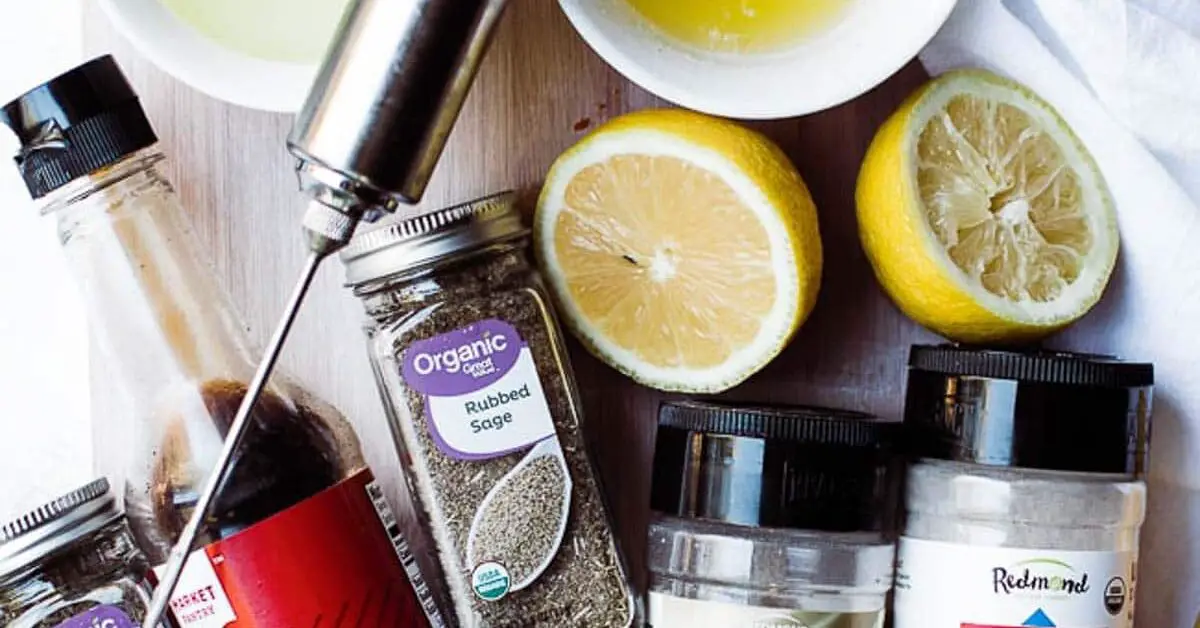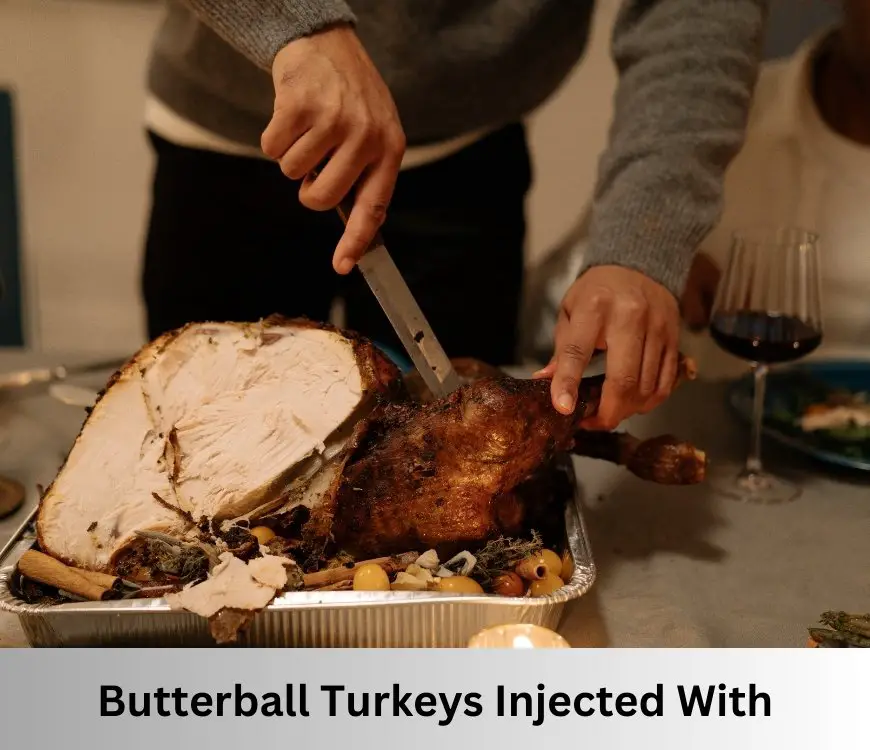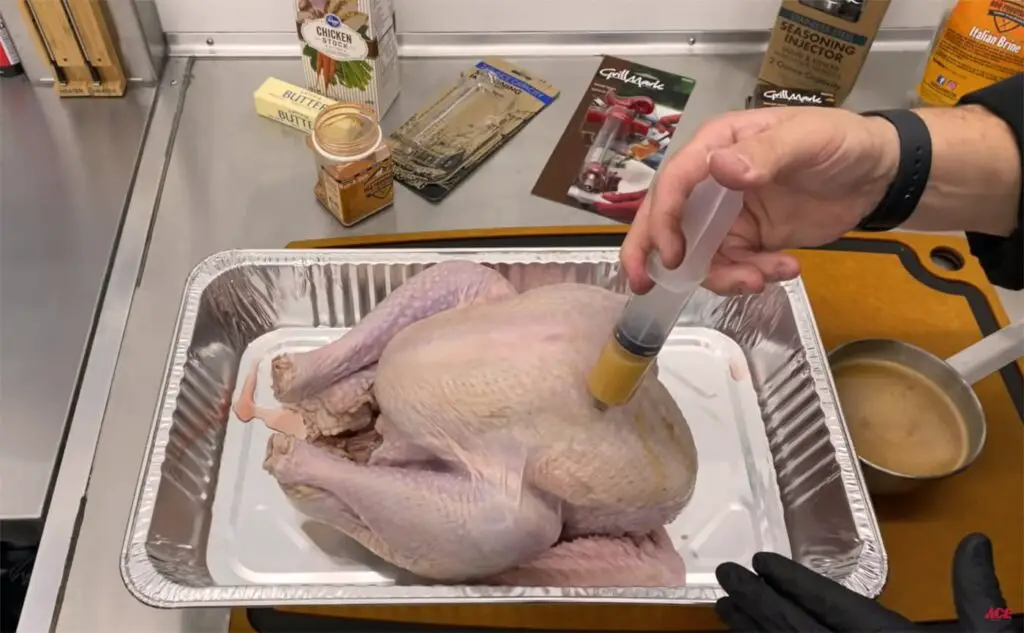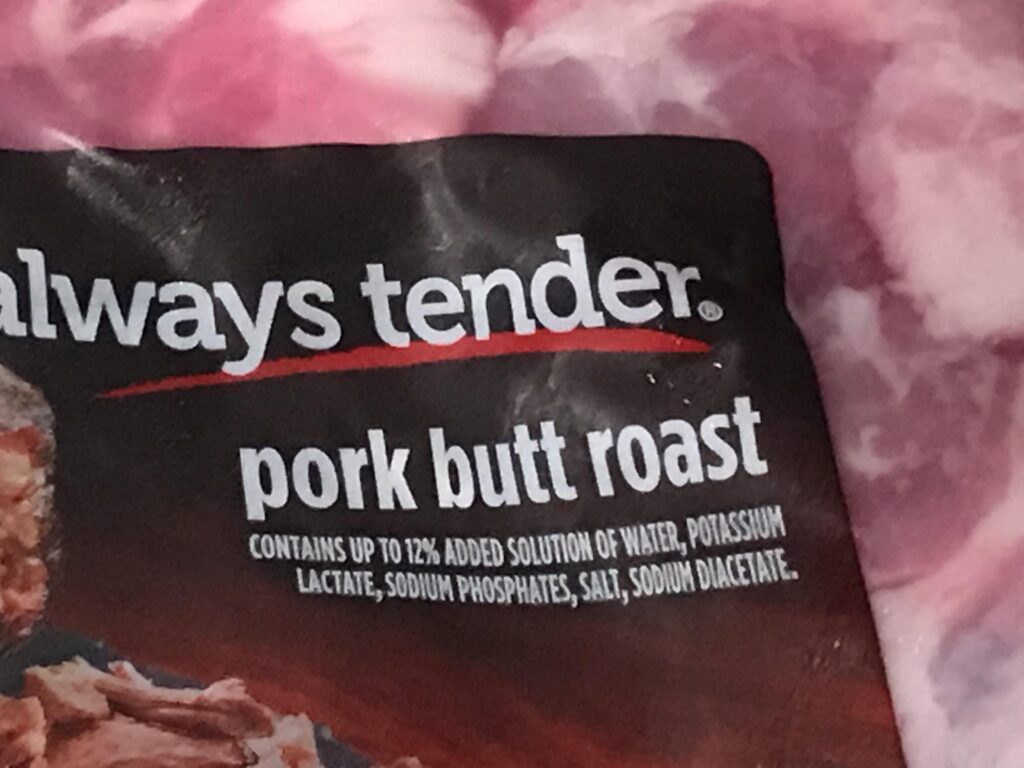To inject a deep-fried turkey, use a meat injector to insert marinade into the thickest parts of the bird. Ensure even distribution for maximum flavor.
Deep-frying a turkey yields crispy skin and juicy meat, making it a favorite for many during festive seasons. Injecting the turkey with a flavorful marinade enhances its taste from the inside out. Choose a marinade that complements your seasoning and use a meat injector to distribute it evenly.
This process ensures the flavors penetrate deep into the meat, providing a succulent and savory experience with every bite. Remember to inject in multiple spots, focusing on the breast, thighs, and drumsticks. Proper injection and even distribution are key to achieving a perfectly seasoned deep-fried turkey.
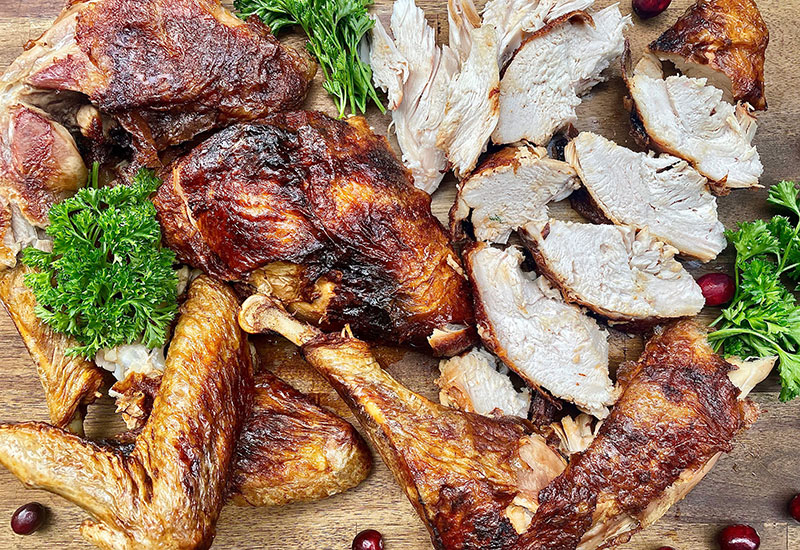 Inject a Deep Fried Turkey: Ultimate Flavor Guide” />
Inject a Deep Fried Turkey: Ultimate Flavor Guide” />Credit: www.heinens.com
Introduction To Turkey Injection
Injecting a turkey is an exciting way to add flavor. The process involves using a special syringe. This syringe injects marinade deep into the turkey meat. The result is a juicy and tasty turkey. This technique is perfect for deep-frying a turkey. Learn how to do it right and impress your guests.
Why Inject A Turkey?
Injecting a turkey helps it stay moist and flavorful. It allows flavors to penetrate the meat. This way, every bite is delicious. Turkey can sometimes be dry, especially when deep-fried. Injection helps prevent dryness.
It’s also a quick and easy method. You can inject the turkey in minutes. The marinade spreads evenly throughout the meat. This ensures a consistent taste.
Benefits Of Deep-fried Turkey
- Speed: Deep-frying a turkey is faster than roasting.
- Crispiness: The skin becomes crispy and golden brown.
- Flavor: Injection adds rich flavors to the meat.
- Moisture: Keeps the turkey juicy on the inside.
- Impress: A deep-fried turkey is a showstopper at any meal.
Choosing The Right Injection Marinade
Injecting a deep-fried turkey adds flavor and moisture. The right marinade makes all the difference. It infuses your bird with delicious tastes. Below, we explore the types of marinades and whether to go homemade or store-bought.
Types Of Marinades
There are various types of marinades for your turkey. Each offers a unique flavor profile. Here are some popular choices:
- Herb-Based Marinades: These include fresh herbs like rosemary, thyme, and sage. They add a fresh, earthy flavor.
- Garlic and Butter Marinades: A mix of melted butter and garlic. This type of marinade adds a rich, savory taste.
- Spicy Marinades: These include hot peppers, cayenne, and other spices. They are perfect for those who love a kick.
- Citrus Marinades: Use lemon, lime, or orange juice. These marinades add a tangy and fresh taste.
- Sweet and Savory Marinades: Combine honey or brown sugar with soy sauce or Worcestershire sauce. These offer a balanced flavor.
Homemade Vs. Store-bought
Choosing between homemade and store-bought marinades depends on your preference. Both have pros and cons:
| Homemade | Store-Bought |
|---|---|
|
|
Homemade marinades let you control the ingredients. You can make them with fresh herbs, spices, and other natural components. This ensures no artificial preservatives or additives. However, making a marinade from scratch takes time and effort. You need to measure, mix, and sometimes even cook the ingredients.
Store-bought marinades, on the other hand, are convenient. They come in a variety of flavors and are ready to use. This saves time, especially during busy holidays. But, they may contain preservatives to extend shelf life. Check the labels if you have dietary concerns.
Essential Tools For Injection
Injecting a deep-fried turkey adds flavor and moisture. To do it right, you need the right tools. Below, we cover the essential tools for injection to ensure a perfect turkey every time.
Injection Kits
An injection kit is necessary for adding flavors directly into the meat. These kits usually come with:
- Syringes – for holding and injecting the marinade.
- Needles – designed to penetrate the turkey’s thick skin.
- Cleaning brushes – for maintaining the kit’s hygiene.
Choose a kit with multiple needle sizes. This allows better control over the marinade distribution.
Safety Gear
Safety gear is crucial to protect you during the injection and frying process. Essential safety gear includes:
- Heat-resistant gloves – to handle hot equipment safely.
- Protective eyewear – to prevent splashes from reaching your eyes.
- Apron – to protect your clothing from spills and splashes.
Always wear your safety gear before starting. It helps prevent injuries and accidents.
Preparing The Turkey
Before injecting a deep-fried turkey, proper preparation is essential. Your turkey must be thawed, cleaned, and patted dry to ensure a successful fry. Each step is crucial for a juicy and flavorful bird.
Thawing Turkey
Make sure your turkey is fully thawed. A frozen turkey can cause oil splatters and unsafe frying conditions. Plan to give the turkey enough time to thaw.
Here’s a simple guide for thawing your turkey:
- Place the turkey in the fridge.
- Allow 24 hours for every 5 pounds of turkey.
- Keep the turkey in its original packaging.
- Place it on a tray to catch any drips.
Cleaning And Patting Dry
Cleaning the turkey is the next step. Remove the giblets and neck from the cavity. Rinse the turkey inside and out with cold water.
After rinsing, it’s important to pat the turkey dry. Use paper towels to remove all moisture. A dry turkey ensures a crisp, golden skin when fried.
Follow these steps for the best results:
- Place the turkey on a clean surface.
- Use paper towels to pat every part dry.
- Ensure the cavity is dry as well.
- Let the turkey sit at room temperature for 30 minutes.
With your turkey thawed, cleaned, and patted dry, you’re ready for the next steps in injecting a deep-fried turkey. Proper preparation ensures a safe and delicious result.
Injecting Turkey
Injecting a deep-fried turkey enhances the flavor from within. This method ensures juicy and flavorful meat. Follow these steps for a delicious result.
Injection Techniques
Choose your injection marinade. Combine melted butter, garlic, and herbs. Use a marinade injector for even distribution. Fill the injector with the marinade.
- Insert the needle deep into the meat.
- Inject slowly to avoid splattering.
- Move the needle around to spread the marinade.
Repeat the process in multiple spots. Ensure even coverage for best results.
Best Injection Points
| Part | Injection Points |
|---|---|
| Breast | 4-5 points per side |
| Thighs | 2-3 points per side |
| Drumsticks | 2 points per side |
| Wings | 1 point per wing |
Inject each point with a small amount of marinade. This helps the flavors spread evenly.
Be careful not to over-inject. Too much marinade can cause the turkey to be too salty. Adjust the amount based on the size of your turkey.
Let the injected turkey rest for at least an hour. This allows the flavors to penetrate deeply. Now you are ready to deep fry your flavorful turkey.
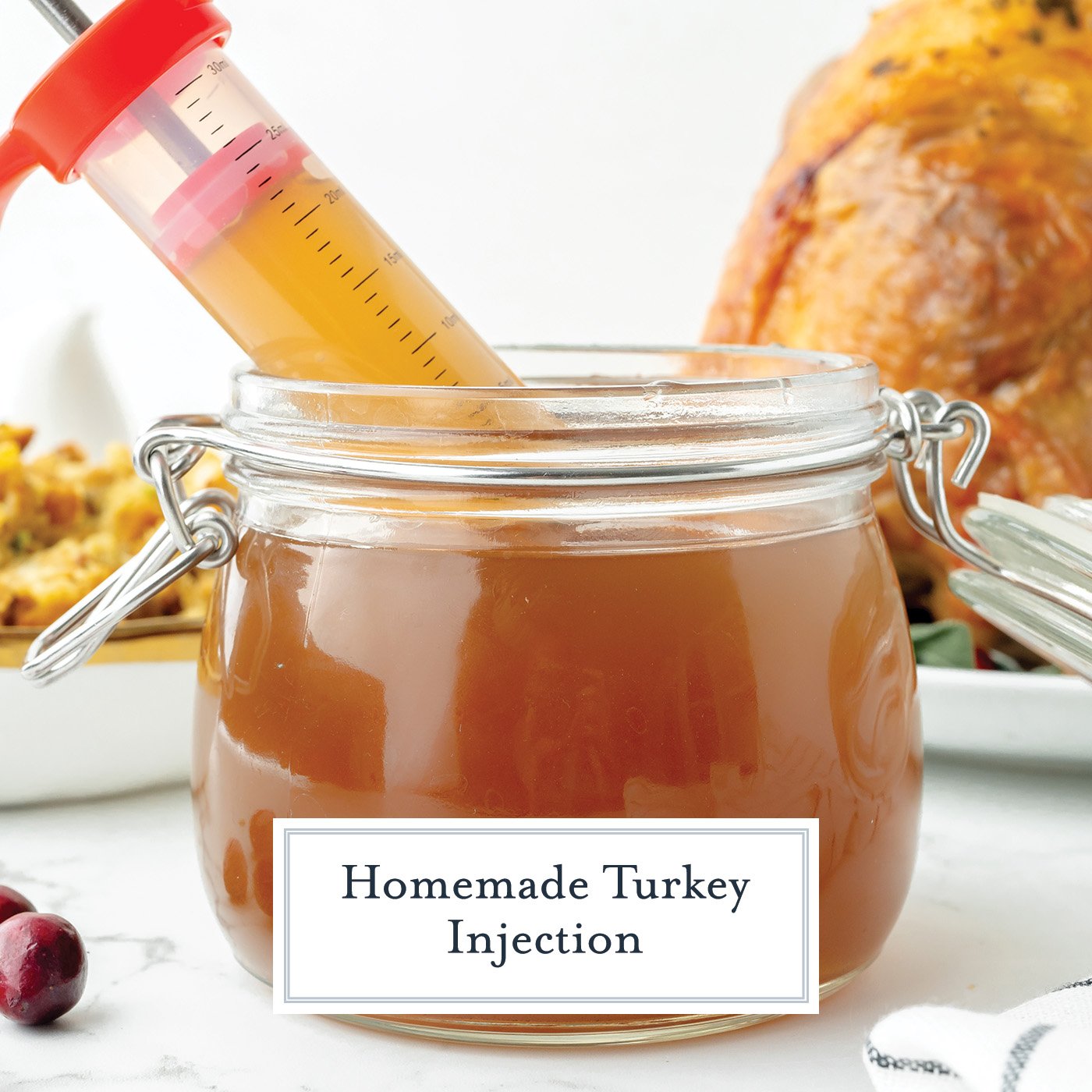
Credit: www.savoryexperiments.com
Marinating Time
Marinating your deep-fried turkey is crucial for flavor. It can make or break your dish. The marinating time impacts the taste deeply. Let’s explore two popular methods: immediate cooking and overnight marination.
Immediate Cooking
If you’re short on time, you can still inject your turkey. Just ensure the flavors penetrate well. Here’s how to do it:
- Prepare your marinade: Combine your favorite spices and herbs.
- Inject the turkey: Use an injector to distribute the marinade evenly.
- Let it rest: Allow the turkey to sit for 30 minutes.
- Start frying: Deep fry the turkey until it’s golden and crispy.
This method is quick. It gives you a flavorful turkey in less time.
Overnight Marination
For a deeper flavor, marinate your turkey overnight. This allows the spices to penetrate fully. Follow these steps:
- Create your marinade: Mix spices, herbs, and liquids of your choice.
- Inject the turkey: Ensure the marinade reaches all parts of the turkey.
- Refrigerate: Place the turkey in the refrigerator overnight.
- Remove and rest: Take the turkey out an hour before frying.
- Deep fry: Fry until the turkey is crispy and cooked through.
This method guarantees a flavorful and juicy turkey. The overnight marination enhances the taste significantly.
Tip: Always ensure your turkey is at room temperature before frying. This ensures even cooking.
Deep Frying Turkey
Deep frying a turkey gives it crispy skin and juicy meat. Follow these steps to master the frying process.
Preheating The Oil
First, fill your deep fryer with oil. Peanut oil is best for frying turkey.
Heat the oil to 350°F. Use a thermometer to monitor the temperature. This ensures the turkey cooks evenly.
Preheating can take 30 minutes. Stay close to the fryer for safety.
Frying Process
Once the oil is hot, slowly lower the turkey into the fryer. Use a fryer basket or a hook.
Be careful of hot oil splashes. Wear long sleeves and gloves for protection.
Deep fry the turkey for 3-4 minutes per pound. For a 12-pound turkey, fry for 36-48 minutes.
Check the internal temperature. It should read 165°F. Use a meat thermometer to verify.
When done, carefully lift the turkey out of the oil. Let it drain for a few minutes.
Place the turkey on a tray lined with paper towels. This absorbs excess oil.
Allow the turkey to rest for 20 minutes before carving. This lets the juices settle.
| Step | Details |
|---|---|
| Preheat Oil | Heat to 350°F |
| Lower Turkey | Use a basket or hook |
| Cook Time | 3-4 minutes per pound |
| Internal Temperature | 165°F |
| Rest Time | 20 minutes |
- Preheat the oil to 350°F
- Lower the turkey carefully into the fryer
- Fry for 3-4 minutes per pound
- Check the internal temperature for 165°F
- Rest the turkey for 20 minutes
Serving And Enjoying
After spending hours preparing and deep frying your turkey, it’s time to enjoy the fruits of your labor. Serving and enjoying a deep-fried turkey can be a delightful experience. This section will guide you through carving tips and suggest perfect side dishes to make your meal unforgettable.
Carving Tips
Proper carving ensures you get the best slices from your turkey. Here are some tips to help:
- Let it rest: Allow the turkey to rest for 20 minutes. This helps the juices redistribute.
- Use a sharp knife: A sharp knife makes carving easier and cleaner.
- Remove the legs first: Cut through the skin between the leg and body, then cut through the joint.
- Slice the breast meat: Cut parallel to the bone for even slices. Start at the top of the breast and work your way down.
Side Dishes
A deep-fried turkey pairs well with a variety of side dishes. Consider these options to complement your meal:
| Side Dish | Description |
|---|---|
| Mashed Potatoes | Creamy and buttery, these are a classic favorite. |
| Green Bean Casserole | Crunchy and savory, it adds a nice texture. |
| Cranberry Sauce | Sweet and tangy, it balances the rich turkey flavors. |
| Stuffing | Herb-filled and hearty, perfect for soaking up turkey juices. |
These side dishes not only complement the flavors of the turkey but also create a well-rounded meal. Enjoy every bite!
Troubleshooting Common Issues
Injecting a deep-fried turkey brings rich flavors to your feast. But, issues can arise during the process. Let’s troubleshoot some common problems.
Avoiding Over-injection
Over-injecting can make your turkey too salty or soggy. Here’s how to avoid that:
- Measure the marinade: Use no more than one ounce per pound of turkey.
- Inject slowly: Inject the marinade slowly to avoid spilling.
- Distribute evenly: Inject small amounts in multiple spots.
Ensuring Even Flavor
Even flavor distribution is key for a tasty turkey. Follow these steps:
- Plan the injection points: Choose several spots to inject the marinade.
- Inject in layers: Start with deeper layers, then move to outer layers.
- Massage the meat: Gently massage the turkey to spread the marinade.
Use these tips to ensure a perfectly flavored turkey. Happy cooking!
:max_bytes(150000):strip_icc()/cajun-turkey-injection-marinade-recipe-335299-step-04-01b0a3c3bdd144f882d64d4f4b7aa7dc.jpg)
Credit: www.thespruceeats.com
Safety Precautions
Injecting a deep-fried turkey can be a delightful experience. However, safety is crucial. Follow these guidelines to ensure a safe and enjoyable cooking process.
Preventing Oil Fires
Deep frying a turkey involves a large amount of hot oil. This can be dangerous if not handled properly. Here are some tips to prevent oil fires:
- Choose a safe location: Always fry your turkey outdoors. Keep it away from buildings and flammable materials.
- Monitor oil levels: Do not overfill the fryer with oil. Use the correct amount to avoid spills.
- Control the temperature: Keep the oil temperature below 375°F (190°C). Use a thermometer to monitor it.
- Stay alert: Never leave the fryer unattended. Always have a fire extinguisher nearby.
Safe Handling Of Hot Oil
Handling hot oil requires caution. Follow these steps to avoid burns and injuries:
- Wear protective gear: Use gloves, long sleeves, and safety goggles.
- Slowly lower the turkey: Use a fryer basket or hook. Lower the turkey into the oil slowly to prevent splashes.
- Maintain a safe distance: Keep children and pets away from the frying area.
- Cool down properly: Let the oil cool completely before disposing of it.
By following these precautions, you can enjoy a delicious and safely prepared deep-fried turkey.
Frequently Asked Questions
Can You Inject A Turkey When Deep Frying?
Yes, you can inject a turkey before deep frying. Use marinades for added flavor and moisture. Ensure even distribution.
What’s The Proper Way To Inject A Turkey?
To properly inject a turkey, use a marinade injector. Insert the needle into the thickest parts. Distribute evenly. Inject slowly to avoid splatter. Repeat until the marinade is evenly spread.
What Is The Formula For Deep Frying A Turkey?
To deep fry a turkey, use 3-4 gallons of oil heated to 350°F. Fry for 3-4 minutes per pound. Ensure the turkey is fully thawed and dry before frying.
Conclusion
Mastering the art of injecting a deep-fried turkey elevates your holiday meals. Follow these steps for a flavorful feast. Remember to use fresh ingredients and a proper injector. Safety is crucial, so handle the hot oil with care. Enjoy your perfectly seasoned, juicy turkey with family and friends!
